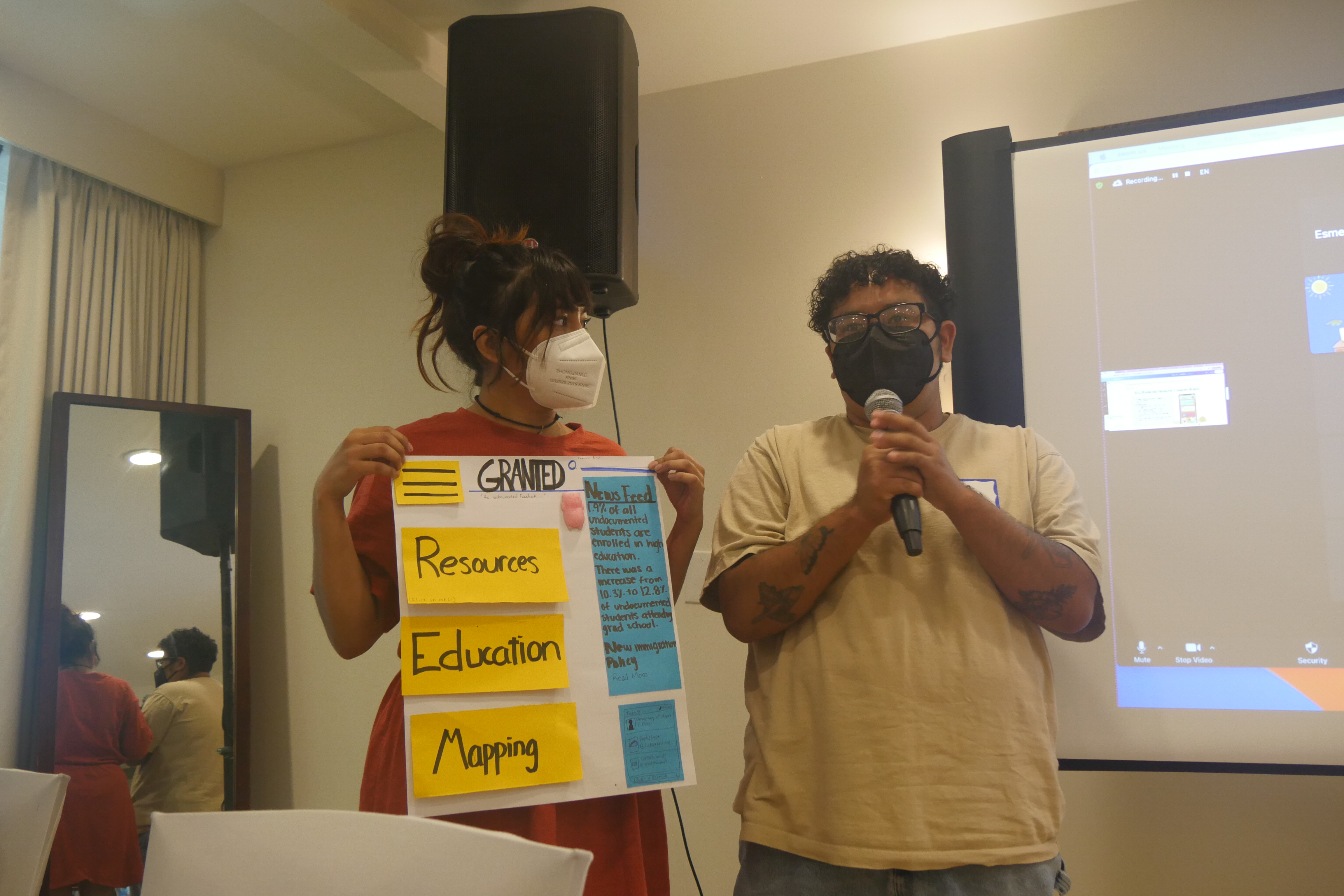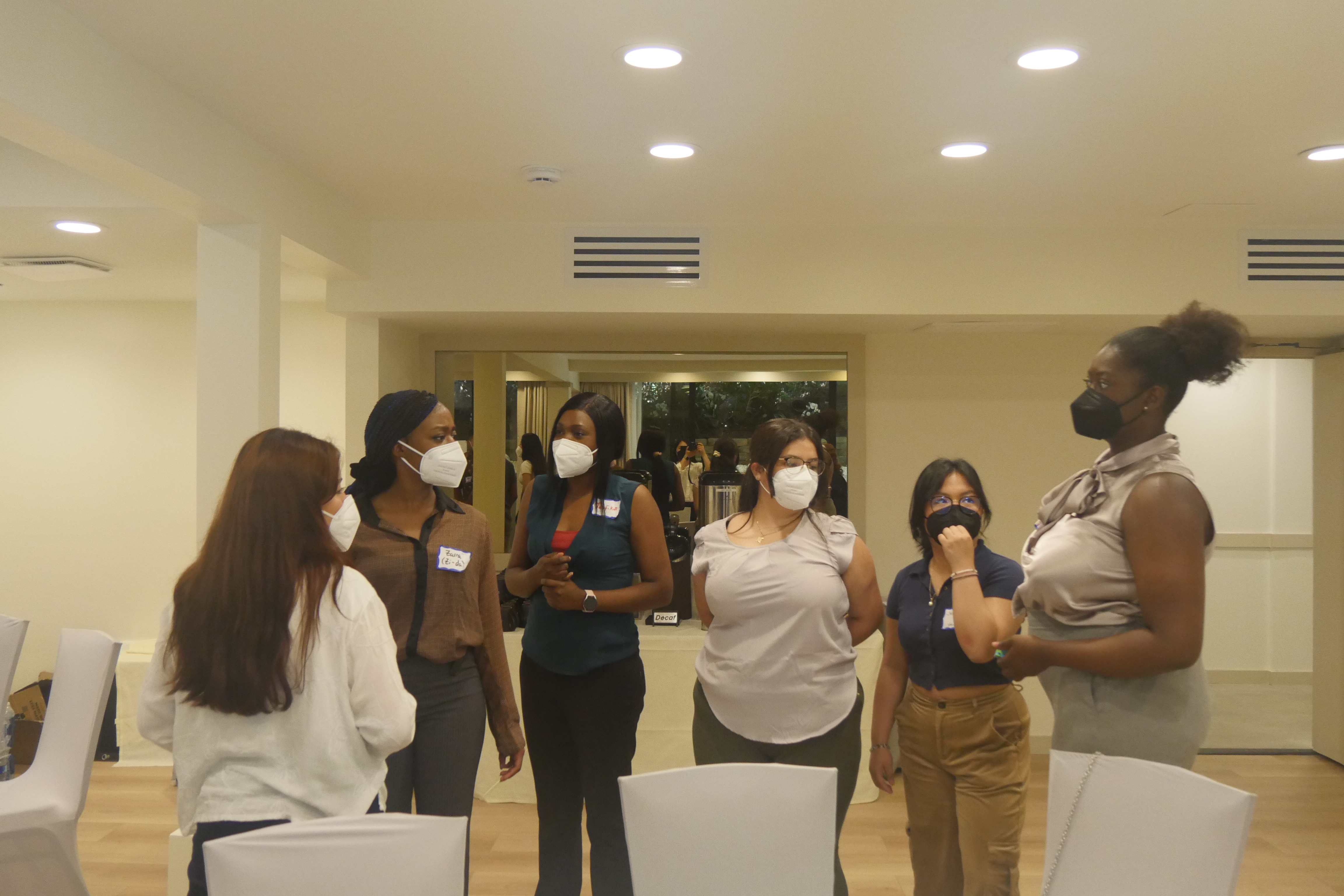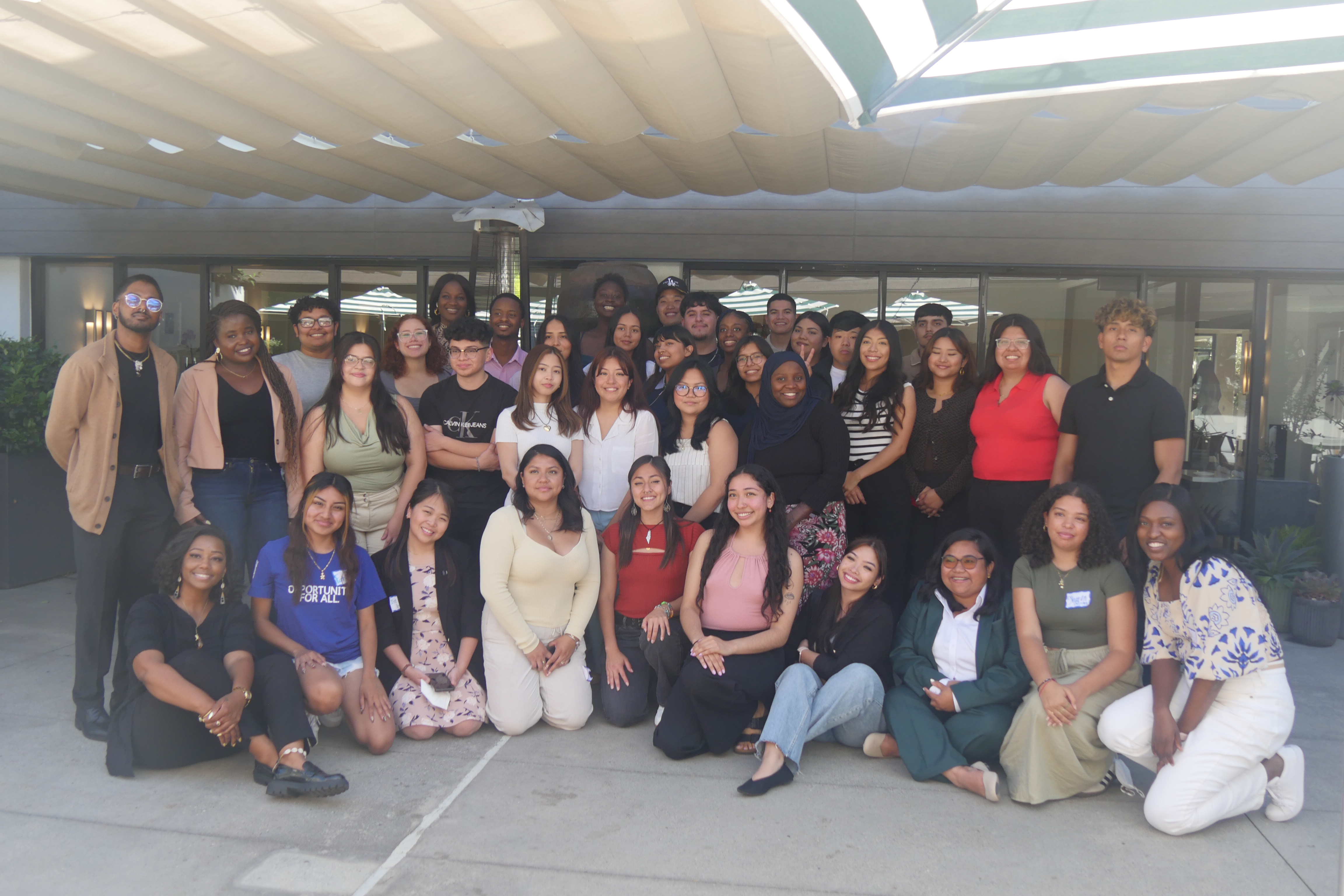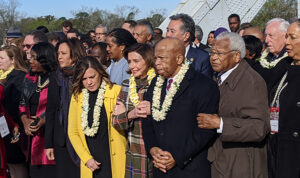
By: Silvia Vazquez and Prabhleen Kaur
Dream Summer is an annual, 8-week, national fellowship of the UCLA Labor Center’s Dream Resource Center (DRC). Through Dream Summer, the DRC has provided close to 900 fellowship opportunities to immigrant youth and allies and has partnered with over 265 social justice organizations across the country. Dream Summer fellows attend retreats at the beginning and end of programming with the goal to provide fellows an opportunity to build connections with other participants. The fellows engage in workshops that prepares them for their placements and engage in critical conversations about the intersecting issues impacting our communities including social, economic and racial justice.
Dream Summer fellow Taofikat O. shares their summer experience working with their host organization, Presidents’ Alliance for Higher Education.
Where are you from?
I was born and raised in Nigeria and moved to the U.S. in 2018. I currently reside in Maryland.
What are your career aspirations?
My long-term goal is to open my own independent pharmacy, focusing on providing personalized care and advocating for the uninsured. In the short term, I am focused on completing my pharmacy degree at Notre Dame University and gaining hands-on experience in the field. Ultimately, I want to be an advocate for healthcare equity and provide compassionate care to all members of my community.
How has the Dream Summer fellowship helped you grow?
The Dream Summer fellowship has been impactful for me. My placement at the Presidents’ Alliance for Higher Education involved researching and gathering information to support our work. This experience honed my ability to find and compile relevant data and resources. Additionally, meeting other undocumented students at the retreat in a supportive environment helped me gain the confidence to share my own story. Hearing their experiences taught me the importance of sharing our narratives and the power of community.

What are the primary objectives of the financial aid tool you are developing for undocumented students at your host organization?
The primary objectives of the financial aid tool for undocumented students are to:
- Identify available resources: By creating a comprehensive hub that helps students identify states offering financial aid for undocumented students.
- Provide detailed information: By offering the necessary details needed to qualify for and apply for financial aid in those states, including eligibility requirements, application procedures, and deadlines.
- Stay informed: By keeping students informed about yearly revisions and updates to these financial aid programs, ensuring they have the most current and accurate information.

How does this tool address the current gaps in financial aid access for undocumented students?
The Financial Aid Revisions Tool addresses the gap in financial aid access for undocumented students, particularly the lack of federal financial aid. This tool aims to keep students informed by providing a centralized platform to track changes to state-specific forms like CAADA and MSFAA. By consolidating information about state financial aid opportunities, it streamlines the search process, making it easier for students to identify alternative funding options and navigate the application process.
Can you describe any obstacles you’ve faced while working on this project?
I faced the tedious process of searching for and understanding various resources. Understanding the residency requirements of different states and obtaining straightforward guidance was particularly challenging. These obstacles revealed how complicated state policies can be and how they differ from state to state, but they also emphasized the importance of making this information accessible and user-friendly for students.

What impact do you hope this financial aid tool will have on undocumented students across the U.S.?
I hope this tool helps undocumented students navigate state financial aid processes more easily, showing them resources available even in neighboring or distant states. I also hope it serves as an advocacy tool, demonstrating to states without financial aid for undocumented students that it’s possible to create such resources.
How does your work with the President’s Alliance influence your approach to this project?
My work with the President’s Alliance has shaped my approach by highlighting the challenges undocumented students face with financial aid. This experience has driven me to ensure our tool is user-friendly and addresses their specific needs. The collaboration skills I developed also help me manage this project effectively.




